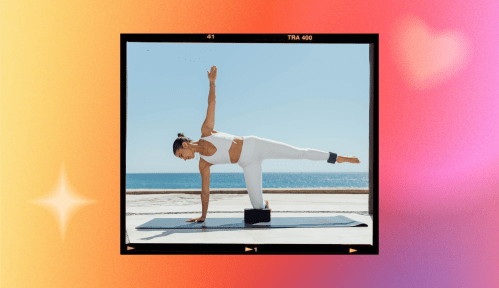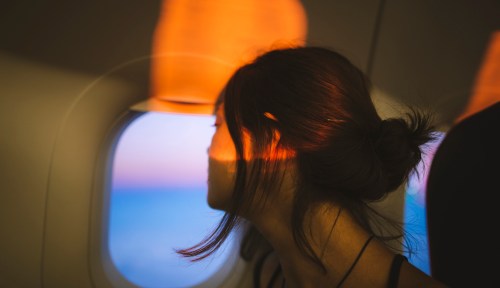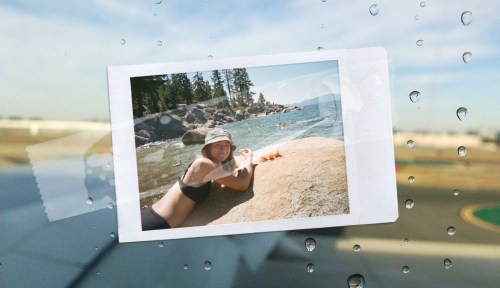In April, Caroline Chambers visited New York City with her husband and three young children for five days. She had grand plans to take her kids to the Museum of Natural History and explore the city through their eyes. But things didn’t go as expected: The kids were bored at the museum, they couldn’t find many places to expend energy, and she and her husband spent many hours lugging a double stroller around the vast metropolis. While it was a fun and exciting adventure, Chambers, a cookbook author who often posts about parenting on social media, says, “That was most definitely a trip—not a vacation.”
Experts in This Article
While both terms technically mean the same thing—time spent away from home—there are vast differences between the lived reality of each. Typically, a trip is travel time where you are still responsible for major daily tasks (whether that’s work- or family-related), and you may or may not have control over the destination and itinerary. So even if your boss is sending you to Tokyo for five days, all expenses paid, you’ll probably spend almost all of that time working in a conference room instead of hitting up the udon spot you’ve been stalking on Instagram. That’s a trip.
A vacation, on the other hand, is time dedicated to pure relaxation, where you are in charge of your actions and locales. “A vacation is going away for pleasure when you can be 100 percent selfish with your time,” says Lora Rosenblum, who works in health care and often travels to conferences and to meet clients and far-flung co-workers.
But, if you’re in a situation where a trip is all you can swing or the only plan in your future for any number of reasons, does that mean you’re not able to reap the feel-good benefits that vacations stand to offer?
The sneaky mental health impact of taking a trip rather than a vacation
The differences separating a trip versus vacation may seem pretty distinct on paper. But oftentimes, trips can masquerade as vacation. Exhibit A: Your best friend’s bachelorette party to New Orleans, where, despite the fact that you’re downing hurricanes and dancing on Frenchmen Street, you still don’t get to decide with full autonomy where your hard-earned dollars are spent or with whom you spend time. Exhibit B: A family reunion with your in-laws, where you and your children are expected to be present at every single event, bathed and dressed to perfection.
“Trips often leave people feeling more tired because they don’t usually leave time and space to do what you want or need, as other people’s wants and needs come first.” —Heidi McBain, LMFT
This might sound like splitting hairs, but there is a mental health implication to the trip versus vacation debate. “Trips often leave people feeling more tired because they don’t usually leave time and space to do what you want or need, as other people’s wants and needs come first,” says Heidi McBain, LMFT, a licensed therapist in Texas. “This may leave you feeling like you need a ‘real’ vacation once you’re home from this trip.” But if all of your hard-earned vacation days are used up going on what amounts to trip after trip, you’re less likely to achieve that sense of time off.
None of this is to say that a trip can’t have moments that are fun, rewarding, or even relaxing. But it does mean that you are allowed to feel a teensy bit (or even a lot bit) frustrated or exhausted when you return from what you hoped would be a vacation and don’t feel recharged. And there are certainly cases when you really do believe upcoming time away will be a bona fide vacation, only to learn in real time that it’s just a trip.
For example, having a “real” vacation can be particularly challenging for parents, particularly new ones. The old adage is that every travel experience with young children is considered a trip because the normal daily responsibilities of parenting still apply. “You are parenting in a different location and, quite frankly, that’s harder than life at home,” says Chambers. (Think: enforcing bedtime while adjusting to a different time zone, or having routines inherently disrupted by plane or car travel). And you certainly don’t get to be fully selfish with your time when traveling with your kids.
“Many parents make the mistake of doing too much or going too big, trying to cram it all in to get the most of your time away,” says Wendy Burk, CEO and founder of Cadence, a corporate travel agency. “It’s understandable, especially if you’re only getting one vacation a year. Simply being out of your comfort zone can be stressful, even if it’s a beautiful tropical island. Trying to see everything just adds to the feeling of overwhelm.”
How to optimize vacations so they don’t feel like trips
Sometimes, the trip-disguised-as-vacation is unavoidable, like when traveling with young kids or the aforementioned family reunion. But there are things you can do to still make the best of your time away and maximize the relaxation potential for you and those with whom you’re traveling.
Chambers says there are very specific ways to ensure that parents can still have a vacation while traveling with kids. “It’s all about going to a hotel that makes things easy for you. It doesn’t have to be a fancy hotel, it just has to have a hotel that has amenities like a body of water and a play structure,” she says. She hasn’t personally found vacation home rentals like AirBnbs conducive to the vacation mindset “because then you’re still expected to cook and clean. You’re basically just picking up your life and putting it in a different location, even if that location has a beach.”
Erina Pindar, COO and managing partner at SmartFlyer, a full-service luxury travel agency, recommends booking a resort experience that has on-site activities and kids clubs for little ones. “While they are busy having fun, you can rest assured that you’re just steps away enjoying the spa or relaxing poolside, just in case you’re needed.”
If you’re not at a structured resort, try Chambers’s “plop” method, which entails waking up and packing up every single thing you need with you for the day, then heading straight to the beach, pool, or park and “plopping” your stuff there for the entire day. “Bring [your kid’s] pillow, their piggy, whatever you need to sleep and do not plan to leave until dinnertime,” she says. Ideally, she adds, you’re staying at a hotel where you can order food right to your locale; bringing along a picnic with PB&Js for the kids also does the job. This way, she says, you lessen the amount of times you have to transition into another activity—which can be chaotic even in the best of times.
“Creating space for personal time is important not just for you but for everyone on the trip.” —Erina Pindar, COO and managing partner, SmartFlyer
Granted, setting up shop at a hotel with major amenities isn’t the most accessible or affordable option. Even so Chambers argues that spending four days at a relaxing destination where you’ve budgeted to purchase all your meals—instead of a seven-day trip where you plan to make all your meals or travel far to your daily activities—may be worth it for the relaxation vibes. “You’re gonna be so much happier if you can make your life as easy as possible,” she says.
Chambers employed her “plop” mindset on a recent getaway to Hawaii with friends, where she took two of her children but her husband stayed home with their third. “I was unplugged and on vacation because we didn’t try that hard. We didn’t try to hike all the volcanoes. We didn’t go whale watching. We plopped on the beach.”
But these vacations may still feel trip-esque because you’re still catering to others’ needs before your own, even if it’s to make things more enjoyable for everyone. In order to get a few pure vacation-like moments out of a trip, “making sure to set time aside in advance for a break in the day is necessary,” Pindar says. “Creating space for personal time is important not just for you but for everyone on the trip.”
If you’re a parent, that might mean splurging on a babysitter for an evening so you can have a date night, or asking your partner to watch the kids so you can get a massage, exercise, or go on a solo excursion. If you’re traveling with other family members or big groups, try doing a “pre-trip call to go over the itinerary and get all the questions out of the way and ensure everyone is on the same page,” says Pindar. This addresses any potential misunderstandings about how much time you all expect to do activities together versus on your own.
Burk agrees: “Find common things you can do together so you get that bonding experience, but don’t be afraid to make time for yourself, too. Vacation is personal, and what pleases one very rarely will please another. Think of it like putting on your oxygen mask. You have to put yours on first before you can help others. So, don’t be afraid to take care of you, so you can get back to fully enjoying the company around you.”
Trips can have vacation aspects, too
Similarly, even when you’re on a very obvious not-vacation trip, “you can carve out time to make moments of a trip feel like a vacation,” says Rosenblum. “For example, if I’m on a work trip to a warm place and my work obligations are over, I’ll spend pre-flight hours by the pool or wandering around a new city. When we travel for weddings, my husband and I try spending time doing things we’d prioritize on vacation, like walking with no agenda or renting a fun car.”
Pindar suggests tacking on a few days to the beginning of a work or obligated trip, if it’s financially feasible. “Arriving a few days prior to the meeting or event to explore a city is always a great way to experience the vacation mindset. In some cases, arriving early also allows you to ease into a new time zone which, as a bonus, makes your trip more productive.
McBain also suggests making time to exercise or meditate during the trip itself, too. “Consider ways that you can nicely prioritize what you want and need through clear boundary-setting with others, even when other people have different expectations around your time,” she says.
There are small ways to tweak your perspective in order to enter vacation mode, too, says Burk. “Take a walk without your phone. Make it a point to learn something new about the city you are in, or visit a local landmark. Even the most boring business trip can become an exciting leisure trip if you shift your mindset about what you want to do and get from the experience, and work around your set agenda to find the white space to explore or discover something new.”
Recently, Chambers and her husband were discussing what kind of travel they might get up to over the summer. Italy was on the table. Ireland, too. But after taking the most-definitely-a-trip-not-a-vacation to New York, they realized they wanted to prioritize relaxation as a family. So they decided another “plop” vacation was in their future instead. “Italy will be so much more enjoyable when my kids are not in a plop phase,” she says. Until then, patience and “plop” are in order.
Sign Up for Our Daily Newsletter
Get all the latest in wellness, trends, food, fitness, beauty, and more delivered right to your inbox.
Got it, you've been added to our email list.











